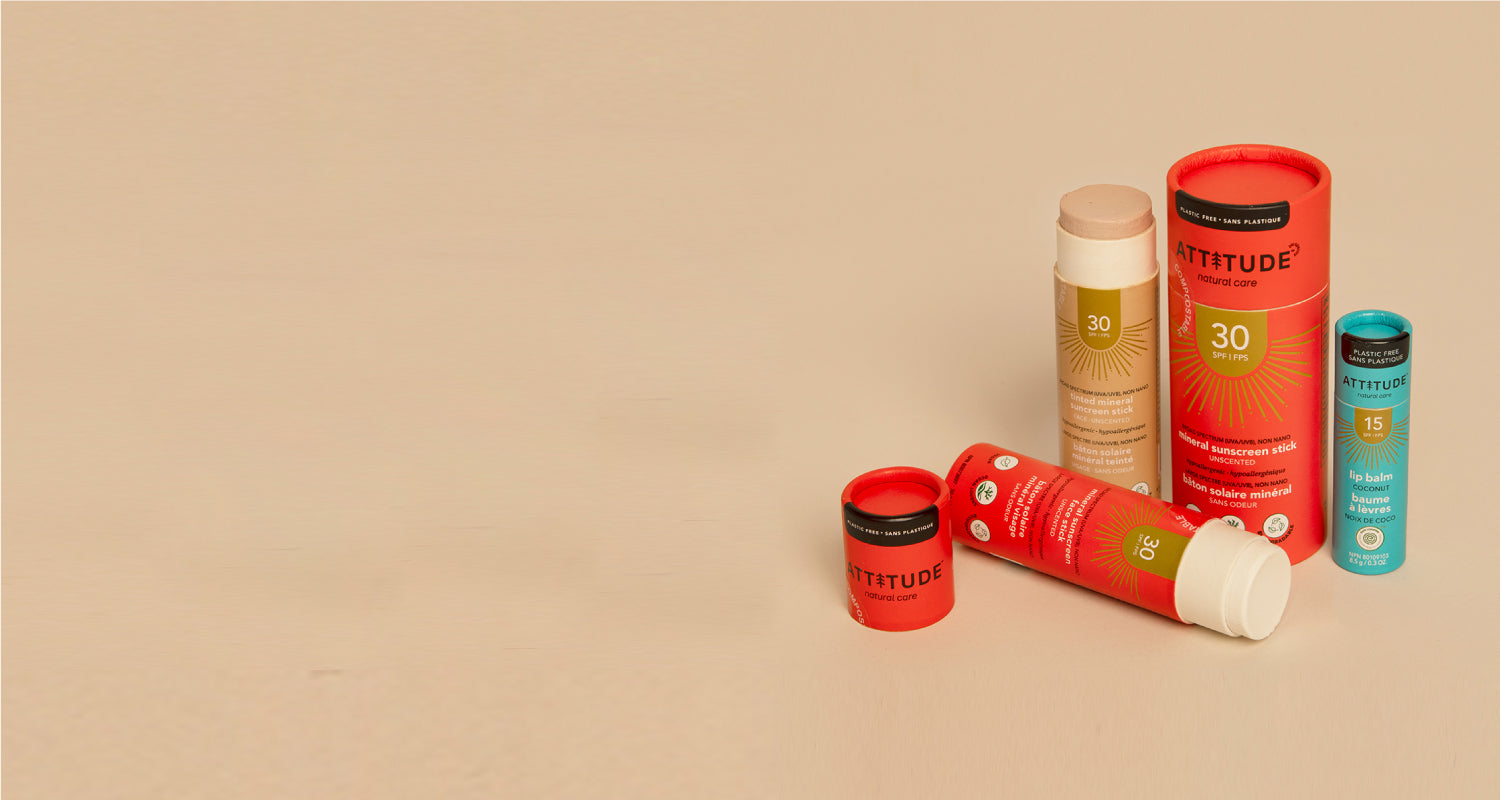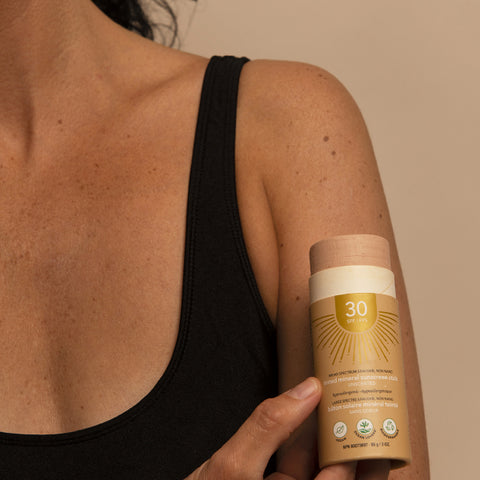
Does sunblock prevent tanning? The short answer is yes: the role of sunscreen is to absorb or disperse UV rays that cause the epidermis to tan to prevent them from damaging the skin.
When used correctly, sunscreen will strengthen the skin’s defence against the sun, helping to slow the appearance of signs of aging, as well as preventing burns and skin cancer.(1)

Can you tan while wearing sunscreen?
Once again, the short answer is yes. Even with a high SPF number, sunscreen cannot fully block the sun’s rays. For example, when applied properly, SPF 30 blocks 96.7% of UVB rays while SPF 70 blocks 98.5%.(2)
No matter what sunscreen you choose, a small percentage of sunrays will always manage to penetrate the skin and activate the body’s melanin, a natural skin pigment that darkens the skin, eyes, and hair.
Therefore, protect the skin first, as the tan will happen naturally. Here are some interesting facts about sunscreen that will help you make wise choices to keep your skin healthy.
How does sunscreen work?
You should know that there are two main types of UV rays that affect the skin differently: UVA and UVB rays.

The sun protection factor (SPF) that all sunscreens contain is a relative measurement that only considers the level of protection against UVB rays. So how do you protect your skin from UVA rays too? By selecting a broad-spectrum sunscreen.
Chemical filters vs. mineral filters

Depending on the ingredients, sunscreens act as a shield in two different ways. The first is by way of skin absorption, in which sunscreens made from chemical filters will produce a reaction on the surface of the skin that will soak up the sun rays before they can cause damage. However, these sunscreens typically contain worrying ingredients like oxybenzone and octinoxate – endocrine disruptors according to EWG experts.(3)
The second way is by skin reflection, in which sunscreens made from mineral filters, such as zinc oxide and titanium dioxide, create a physical barrier on the skin that bounces UV rays before they can penetrate the epidermis.
Do these sunblocks prevent tanning? Largely, yes. But what matters most is that it protects you against sunburn and skin cancer without resorting to chemicals that could cause side effects.
Why is sunscreen important?
Sunlight exposure is the reason for 90% of visible skin changes over the years(4) and around 65% of melanoma cases in Canada.(5) Fortunately, when used properly, broad spectrum sunscreens can help prevent you from adding to those unflattering statistics.
To maximize its efficacy, apply generously and evenly at least 15 minutes before sun exposure. Reapply every two hours when you are outside or immediately after swimming or physical activity.(6)

Three essential protective measures
While it is an important action, wearing sunscreen will not protect your skin by itself. To provide your skin with optimal protection, utilize these three helpful tips:
- Look for shade
- Wear long-sleeved and long-legged clothing, sunglasses, and a hat
- Avoid sunlight exposure between 10 a.m. and 2 p.m. when the UV rays are at their brightest
Can you tan while wearing sunscreen and following these measures? Very little, but it’s better to have healthy skin with a natural tone than tanned and damaged skin.
Which sunscreen to choose?
Compiled by the experts at EWG, the sunscreen guide consists of more than 1,850 different sunscreens, in which only a quarter of the products offer sufficient protection from the sun while being free of worrying ingredients.(7)
Among this list are our leaves bar™ plastic-free sun sticks, which are formulated with non-nano zinc oxide, the safest and most effective mineral sunscreen by EWG standards. Our sun sticks are not only suitable for all complexions and offered in a fully biodegradable cardboard tube, they also won’t leave a trace on your skin or the environment. They’re hypoallergenic, vegan, ocean safe, and dermatologically tested.
No matter what brand you prefer, the EWG recommends using zinc oxide as a sunscreen while keeping away from aerosol products. According to the EWG, these sprays are potentially more harmful than good as they are generally difficult to apply correctly and can contain carcinogens, such as benzene, that can damage the lungs from inhalation.
Sunscreen that is good for you and the environment

So, does sunblock prevent tanning? Of course, it does. But by blocking the UV rays, it protects your skin from significant damage. Now that you understand how to choose a safe sunscreen, find one that not only protects you but the environment as well.
Did you know that some sunscreens are harmful to marine life, mainly corals? Put your mind at ease by following these three tips for picking reef-friendly sunscreen.
Sources :
- https://www.canada.ca/en/health-canada/services/sun-safety/sunscreens.html
- ATTITUDE_Sunscreen_Guide_2019_EN.pdf
- https://www.ewg.org/sunscreen/report/the-trouble-with-sunscreen-chemicals/
- https://www.skincancer.org/blog/photoaging-what-you-need-to-know/
- https://cancer.ca/en/cancer-information/reduce-your-risk/be-sun-safe/enjoy-the-sun-safely
- https://www.canada.ca/en/health-canada/services/sun-safety/sunscreens.html
- https://www.ewg.org/sunscreen/report/executive-summary/